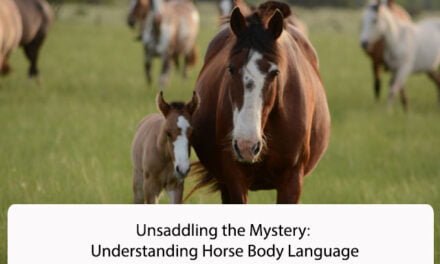Nutrition is key for horse health and performance, but with so many diets available it can be tricky to know which one suits your horse best. Whether you’re just starting out with fur friends or already have a couple in the stable, understanding the nutrition requirements for horses and how to meet them is extremely important. In this blog post, we will explain what type of diet fits each individual horse’s lifestyle and needs so that every four-legged friend maximizes their full potential!

Understand the differences between various horse diets
Understanding the differences between various horse diets is incredibly important for any horse owner. As the saying goes, “You are what you eat,” and this applies to horses just as much as it does to humans. There are a multitude of diets to choose from, including forage-only, grain-based, or a combination of both. Each option has different nutritional benefits and drawbacks, and it’s important to understand these differences in order to choose the diet that is best for your horse’s individual needs.
For example, forage-only diets can be great for horses with sensitive stomachs, while grain-based diets can provide more energy for horses with high levels of activity. By taking the time to learn about these differences, you can ensure that your horse is getting the right balance of nutrients for optimal health.
Research your horse’s breed to determine what type of diet is best for them
Proper diet is a critical component of horse care, and it may differ based on the horse’s breed. By researching your horse’s breed, you can determine the best type of diet for them, taking into consideration their nutritional needs and any potential health concerns. When considering different diet options, be sure to check out Forage Plus, a company that offers a wide range of supplements and tailored diets specifically designed for horses. With their expertise, you can ensure that your horse is receiving all the necessary nutrients to thrive.

Consider your horse’s age and size when determining their diet
Remember to take into account the age and size of a horse when deciding what to feed them. A young horse may require more protein to help with growth and development, while an older horse may benefit from a diet that supports joint and digestive health. Additionally, a horse’s size can affect how much it should eat and the frequency of feedings. By taking these factors into consideration, we can ensure that our horses are receiving the proper nutrients they need to maintain good health and well-being.
Talk to an equine nutritionist or veterinarian for advice on your horse’s diet
To ensure optimal health for your horse, it is crucial to maintain a balanced diet. Seeking expert advice is the best approach to achieving proper care. Equine nutritionists and veterinarians are well-versed in the dietary needs of horses and can provide valuable insights into the type and quantity of food your horse requires. Whether it’s advice on supplements or understanding the nutritional composition of different feeds, seeking guidance from qualified professionals can help you create a tailored feeding plan that suits your horse’s individual requirements. With the help of an equine nutritionist or veterinarian, you can make smarter food choices for your horse and enjoy a healthier, happier animal.
Make sure all food and supplements you provide are fresh and safe for horses
To ensure your horse’s safety and health, it is important to provide fresh and secure food as well as supplements. Stale or contaminated food can lead to a variety of health issues for horses, ranging from mild illness to serious conditions. To avoid these problems, make sure you carefully inspect any food or supplements before feeding them to your horse. Check the expiration dates, smell for any signs of spoilage, and look for any visible mold or discoloration. By taking the time to properly vet your horse’s diet, you can help keep them healthy and happy for years to come.
Monitor your horse’s behavior and changes in condition to ensure their diet is working correctly
Every horse is different, and their dietary needs may vary depending on their breed, age, and activity level. Keeping track of their behavior and condition can help you work closely with your veterinarian and nutritionist to make adjustments to their diet if necessary. By monitoring their physical appearance, energy levels, and eating habits, you can ensure that your horse is receiving the right balance of vitamins and minerals they need to maintain overall health. So, make sure to keep a watchful eye and observe any changes, as it can ultimately be the key to ensuring your horse is happy, healthy, and thriving.
It is clear that horse diets differ from one another and should be tailored to fit the unique characteristics of your horse. Horses are creatures that require care and attention; providing them with a well-thought-out diet is a great start toward ensuring they live the healthiest life possible.



